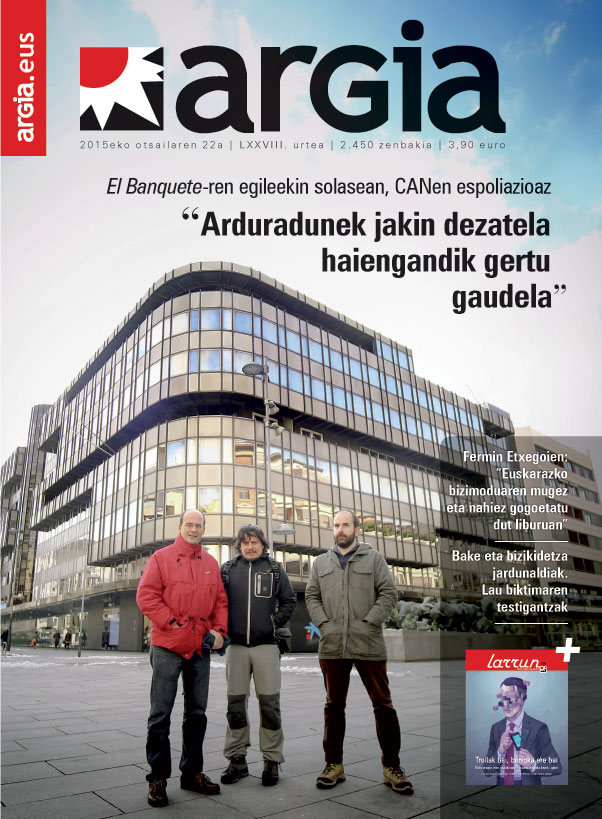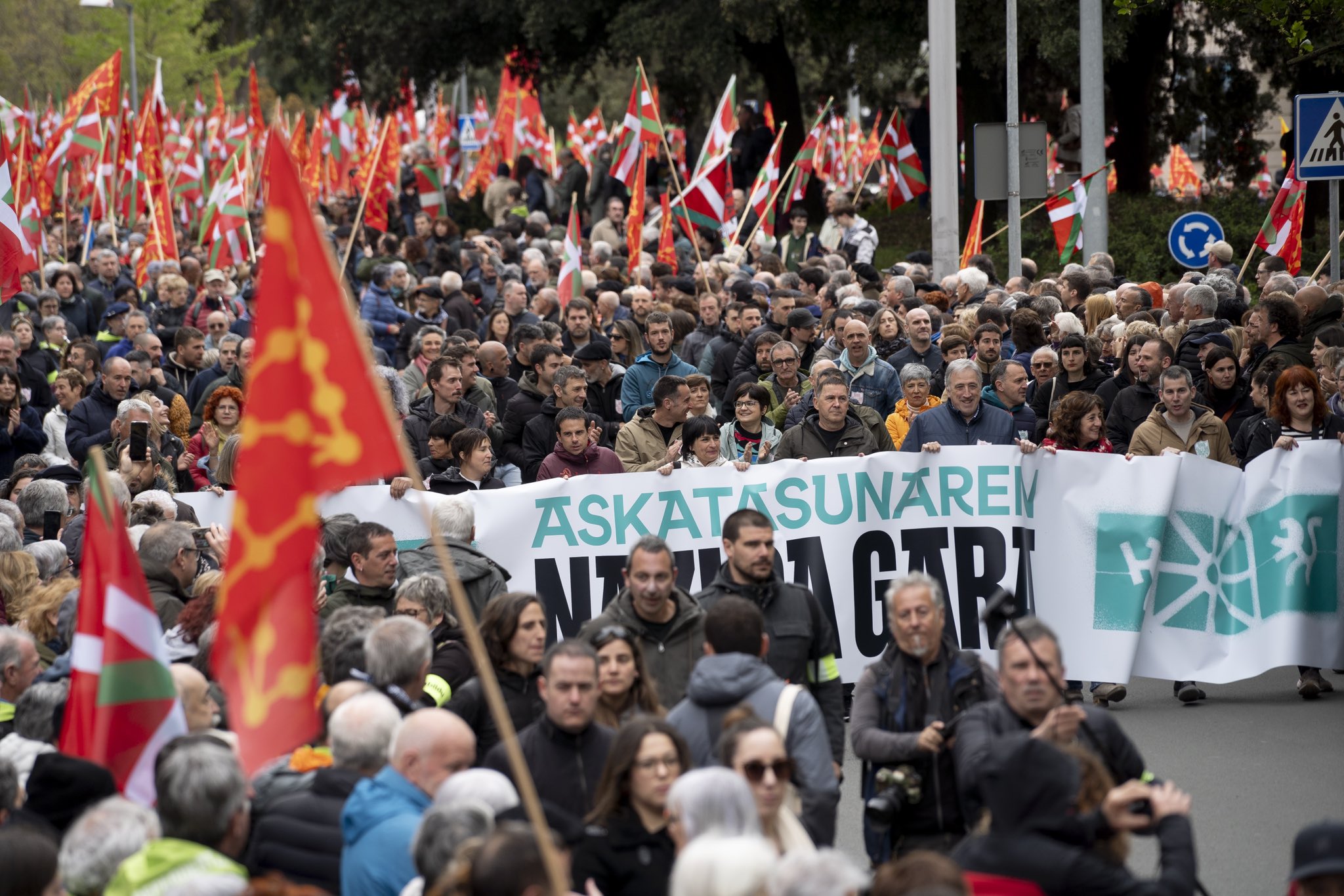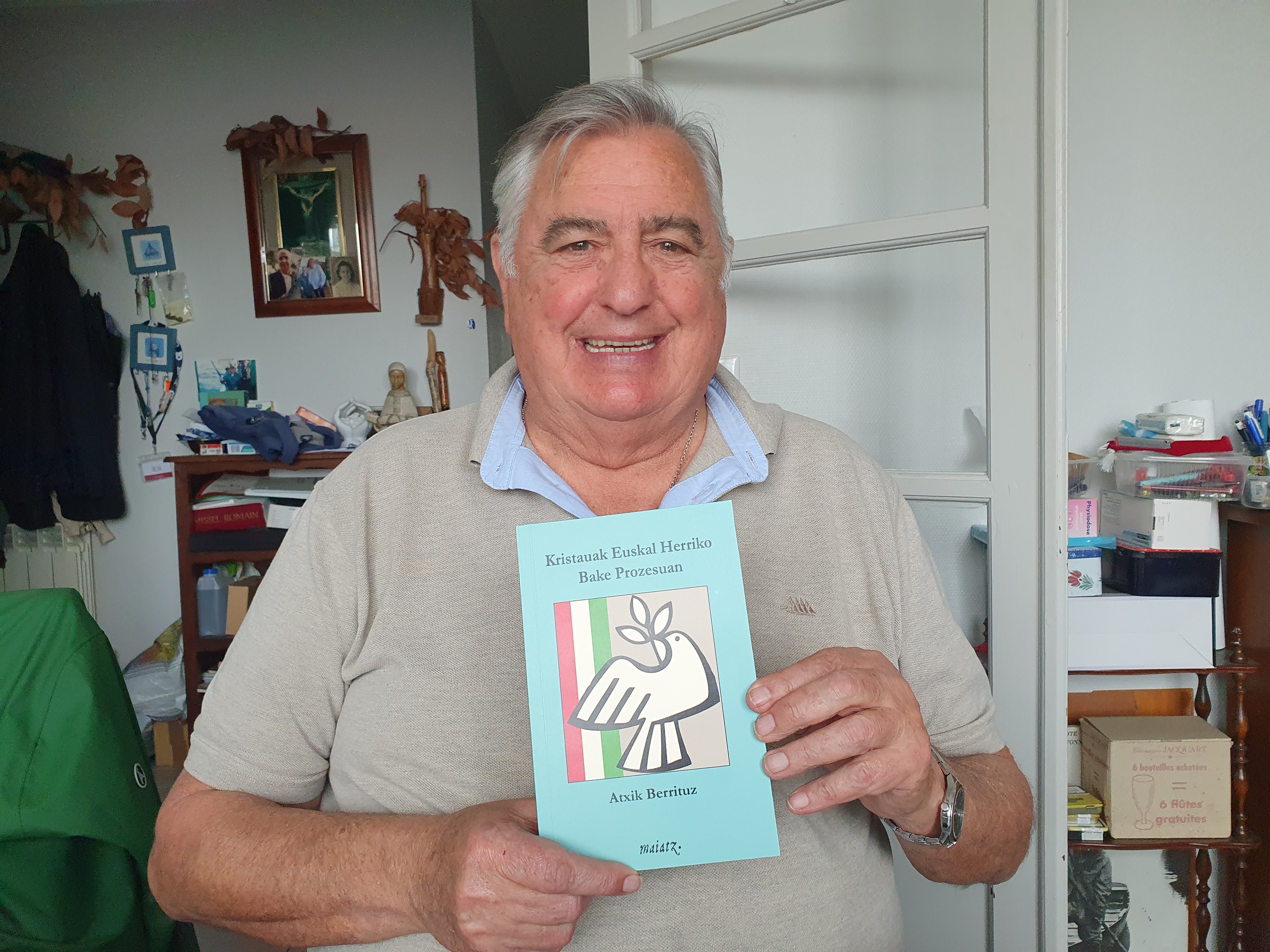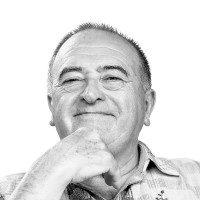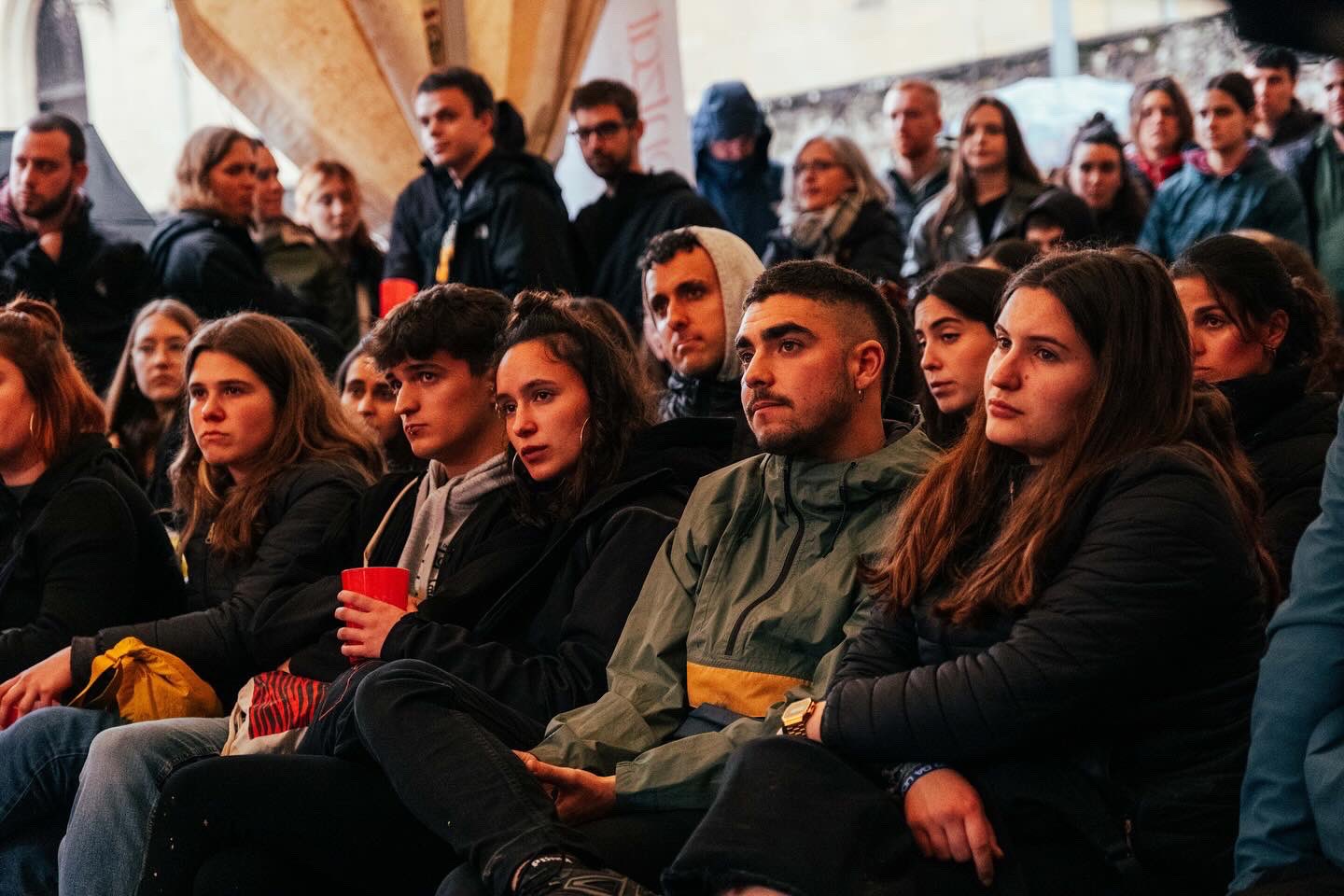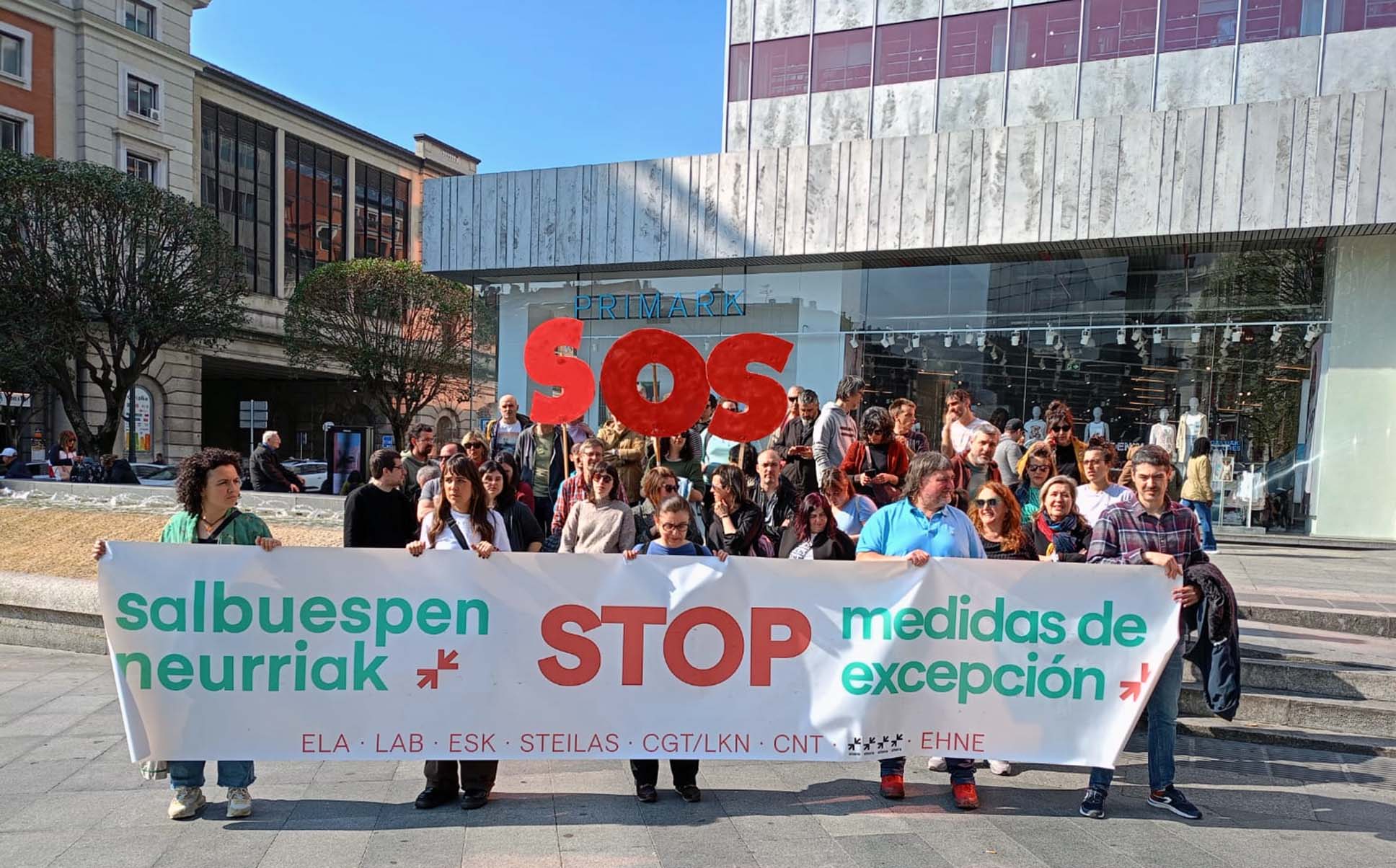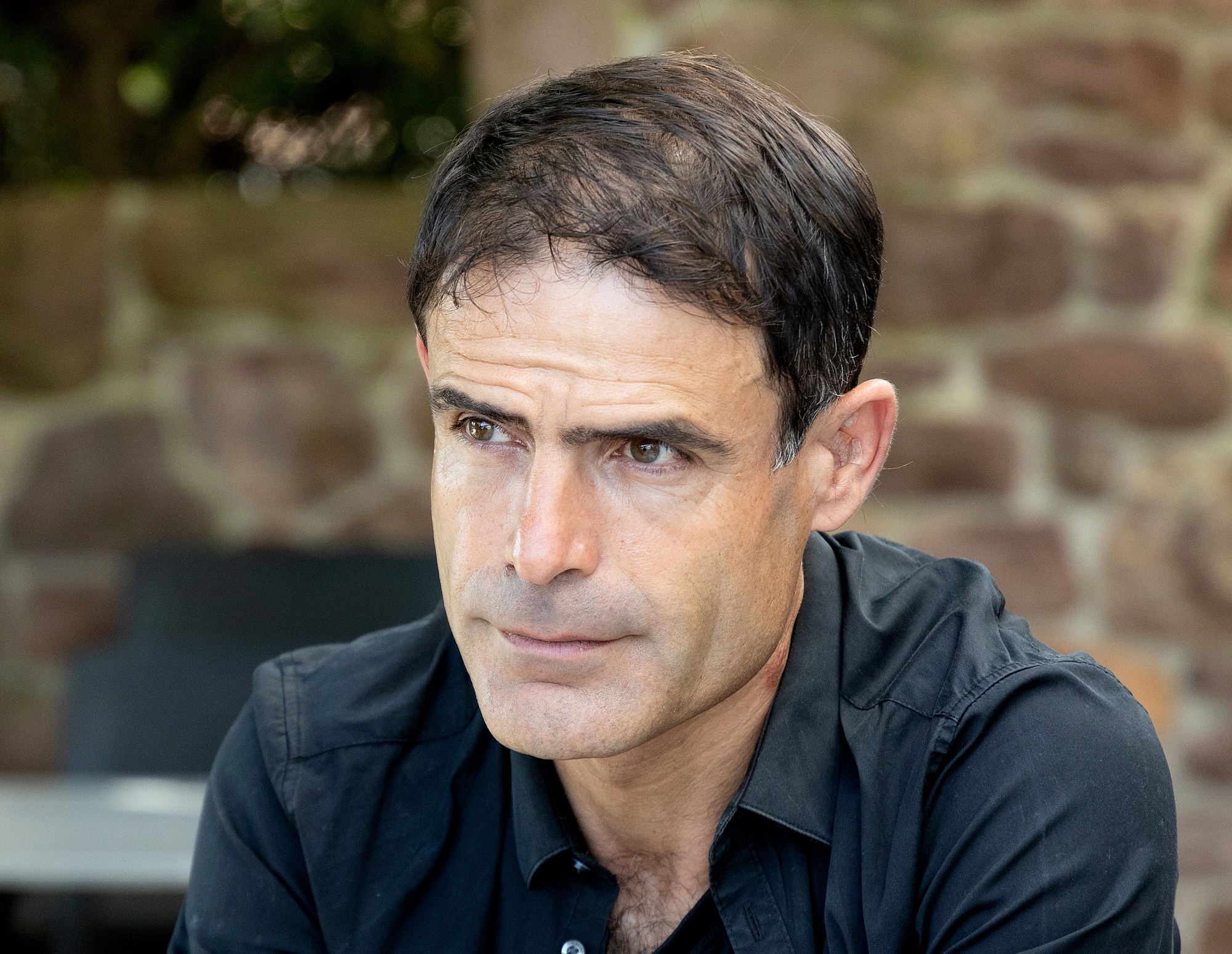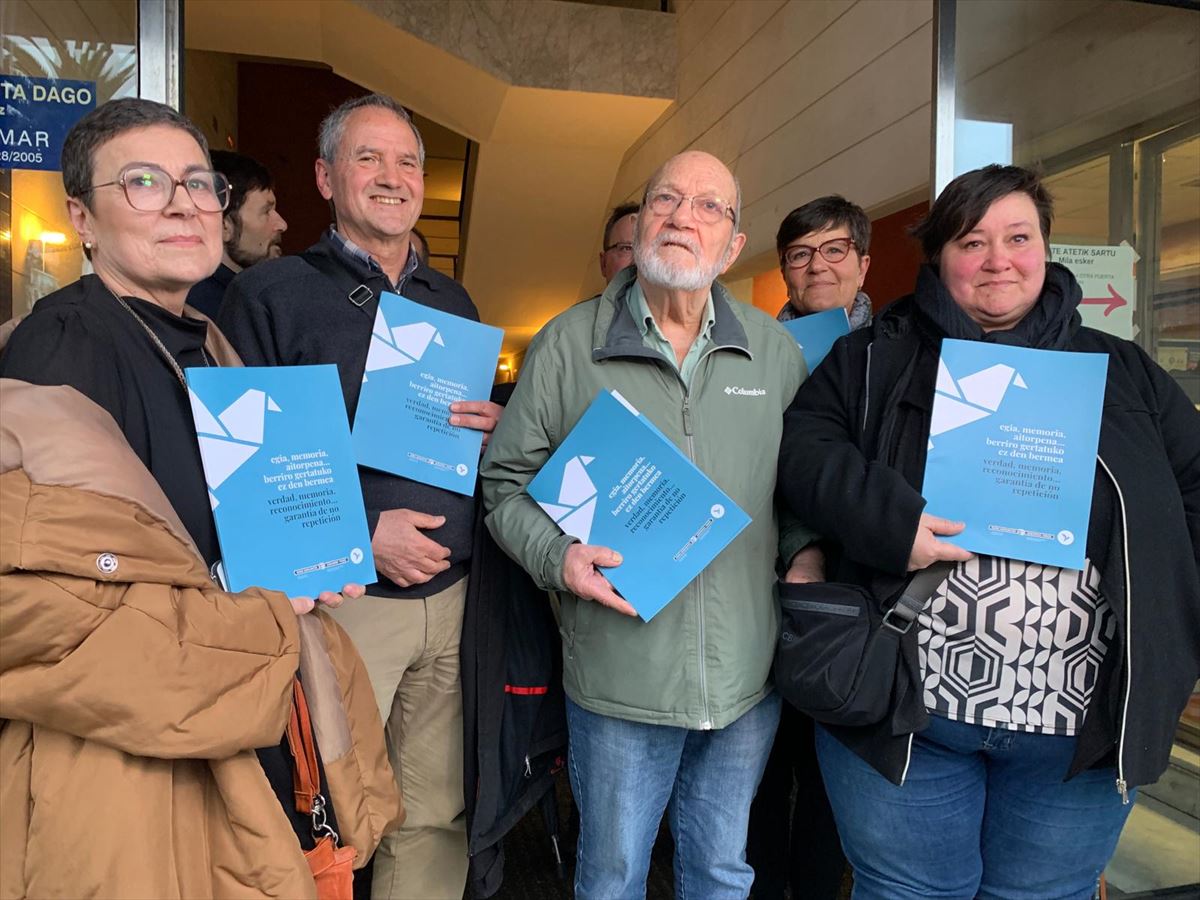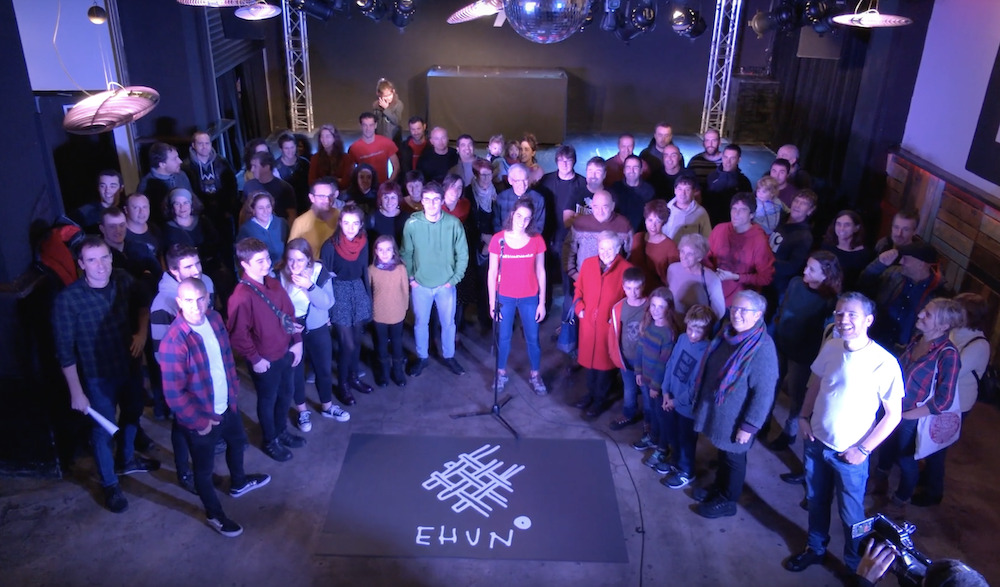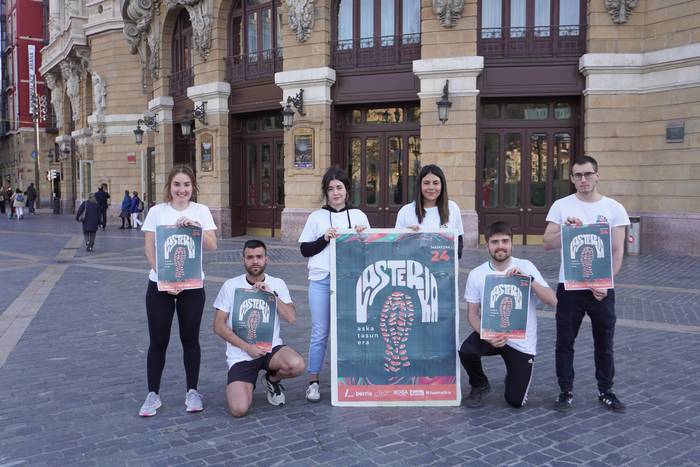The climate of peace remains low
- We live in the age of recognition of past experiences, or at least we want it. The Bidasoa days organized by Antxeta Irratia and Lokarri have witnessed this. The first event took place in Hondarribia on 5 July. The rapporteurs pointed out that for coexistence to be solid, society, led by the political class, will have to overcome many learnings.
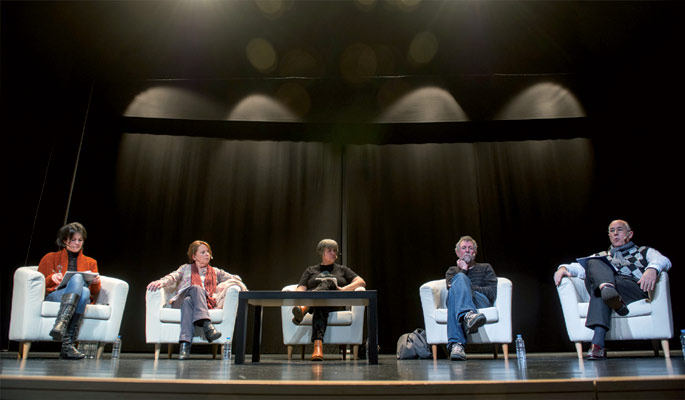
Three initiatives for coexistence took place in February in Hondarribia, Hendaia and Irun. Cristina Sagarzazu, Belén Zabala, Fermín Urtizberea and José Miguel Gómez Elosegui, together with moderator Aitziber Blanco of Lokarri, sat at the Casa del Mar de Hondarribia. In front of them, about 200 people are attentive and silent. Here are a few words from the moderator: “The path of coexistence is not easy, but it is in the hands of society. Listening to each other and knowing each other, some of the keys.”
José Miguel Gómez Elosegui
J. M. Gómez Elosegui spoke in his speech, the brother of Francisco Javier Gómez, killed by ETA in 1997: “He was 42 years old when his brother was killed. I couldn't get rid of my internal anger until after two months, and then, thanks to a seven-month therapy, I got up. Murder helped me become more peaceful.”
F. J. Gómez Elosegui was a psychologist at the Martutene prison. Member of ELA on Basque nationalism. He told his brother's death, excited but quiet. She told the killer's data and how the family lived, including her mother's following phrase: “This country has no solution.” José Miguel is optimistic in himself, but stressed that the effects of violence are very contagious. No one has to protect society, let alone ETA. The consolidation of coexistence will require a long period of time, with the clarification of all the attacks on both sides. “There is no political goal that can justify violence,” he added.
Fermin Urtizberea
Fermín Urtizberea was kidnapped for three days by the Spanish National Anti-Terrorist Group (1988). He was arrested for the first time by the Civil Guard in 1976, according to the same source. He publicly reported for the first time the terrible persecutions suffered by the police and para-police groups for fifteen years. He was a councillor from the Abertzale left in Hondarribia. In addition to being arrested and beaten, he was made to pay twice the fines: 20,000 and 15,000 pesetas. He lived in a hamlet, and was the victim of violent persecution, which forced him to live on the street. He lived in the house of some friends, changing places from time to time. When it was an ETA attack in the Bidasoa area, Urtizberea was targeted by the police. Despite knowing the prison, which spent three months in Martutene, the most difficult moments were kidnappings and periodic persecution. He has recognized the presence of the alleged police gun and the feeling that a bullet passed through the side: "I haven't been afraid to die. I am innocent of all the actions I was accused of. There are many victims in the conflict, but the cases of my ideology have not been looked at like others, even more, I have been insulted, I have been reproached that my facts have been invented by myself,” he said.
Bethlehem Zabala
Bethlehem Zabala is the niece of Hondarribitarra Josu Zabala. At home they call him Jesus Mari. He was the youngest of six siblings. He was killed by the Civil Guard on 8 September 1976, during the local festivities, in one of the most memorable weeks in favor of amnesty. On the day of his death, Adolfo Suárez was already president of the Government of Spain. The mayor tried to get the State's armed forces out of the city, both with the local authorities and with the heads of the Madrid authorities. But it didn't help. The Civil Guard seized the people and one of them killed Zabala with two gun shots, with no "intuition" at any time. The autopsy confirmed that the shots occurred at the site where the event occurred, but not in vain. The following day there were numerous demonstrations and strong protests: bishops, businessmen, factory leaders, citizens and workers responded decisively. Josu Zabala was a worker of the company Laminaciones de Lesaca, which was ex officio as a delinquent of the same company. Belén Zabala said: “A local newspaper wrote Uncle Jesus Mari ‘A 22-year-old Iraqi youth and a criminal profession’. The regime at the time was that of the press. The family had not seen such an insult for many years. It was pointless to try. According to Bethlehem, the adhesion of the people and popular associations has been great, while the adherence by the powers and institutions has been “and has not existed”. Bethlehem remembered his uncle's father and mother, they were crushed to death, both grievous. He recalled that some victims on one side demand the truth firmly, but in his view not all victims are equally remembered or accompanied. The civil guard who killed Josu Zabala did not even go to jail, thanks to the amnesty of that year.
Cristina Sagarzazu
Montxo Doral was killed by ETA on 4 March 1996. Her widow Cristina Sagarzazu has never lived outside public life: “I don’t talk about Montxo, and today I’m not going to do it either,” he said when he started speaking. The shortest, the most robust of all performances. She was 36 years old when her husband and two children were killed. “Hatred will not come into my house.” That is one of its maxims. It's not the first time she's made public, nor that her husband, like him, was Abertzale and independentist. Sagarzazu reported to the media: “The usual handling of the back of the dead is infamous.” He endured it on his own skin. When her husband's corpse was still hot, she received a call from a media outlet that invited her into a live radio show: “I told them no. However, from the other side of the phone I had to hear these words: Are you waiting for Sabin Etxea's orders to be able to speak? Like the other interlocutors who sat with him, Sagarzazu is not attracted to the word “victim”: “Montxo was murdered by ETA miserably. I will never forget it, but nor will I forget the profit, the cruelty, that so many have taken from the neck of the dead. Sensitivity is very low in all respects. The word respect in the mouth is yes, but they have put us ‘scathing’. And that’s something that society has easily embraced,” Sagarzazu said.
Truth, justice and reparation
Three coarse words. But what more criticized, such as the word “victim” for each of the interlocutors. However, each person nuanced the word. Finally, the four speakers answered the questions of those present. A lot of questions and answers. All four coincide in some diagnoses. For example: “Silence is the evil of this society, the great evil. The wounds have to be healed, but that is why we have to talk a lot about it. We all have to learn to understand each other and to speak well.”
The anecdotes perfectly reflected the hard times these people have experienced. But you don't have to understand them as stories or stories. If truth, justice and reparation are going to be for everyone, words have to be filled with content. And it's still going to take a long time. The words are merged in the following opinions: after three decades of terrible violence, society has great learning and tasks. The pain caused, the pain caused everywhere, must be recognized directly by the authors, by some directly and by others indirectly. Democratic hygiene is still very poor. And in this task, first of all, the political parties must show the democratic culture. The authorities, I mean.
Atxik Berrituz giristino taldeak Kristauak Euskal Herriko bake prozesuan liburua argitaratu du Maiatz argitaletxearekin. Giristinoek euskal bake prozesuan zer nolako engaiamendua ukan duten irakur daiteke, lekukotasunen bidez.
It’s not Christmas Day, it’s Christmas Day that we Basques need. Once a year there are repeated calls from potential patriotic parties and groups, on these dates, the homeland of the Basque Country is the Basque Country/Euskal Herria around the proclamation. It's a matter of a... [+]
Aberri Eguna elkarrekin ospatzeko xedez sortu zen Euskal Herria Batera plataforma. Aurten, ikusgarri bat eskainiko dute apirilaren 11n, Manex Fuchs antzerkilariaren, Lorea Agirre idazlearen eta Martxel Rodriguez dantzariaren eskutik.
The writer Juan Bautista Bilbao Batxi worked in a boat and sent the chronicles of his travels to the newspaper Euzkadi. Thanks to this, we have interesting chronicles in Basque from around the world from the beginning of the 20th century. In June 1915, he made his stop in... [+]
Fusilamenduak, elektrodoak eta poltsa, hobi komunak, kolpismoa, jazarpena, drogak, Galindo, umiliazioak, gerra zikina, Intxaurrondo, narkotrafikoa, estoldak, hizkuntza inposaketa, Altsasu, inpunitatea… Guardia Zibilaren lorratza iluna da Euskal Herrian, baita Espainiako... [+]
Azken astean ezagutarazi moduan, Eusko Jaurlaritzaren Balorazio Batzordeak txosten banatan aitortu ditu estatuaren biktima gisa. Justizia sailburuak ekitaldi pribatu banatan entregatu dizkie dokumentuak.
Independentziaren aldeko ekimenak aurrera eramateko baliabide faltagatik "itzaliko" da. Aurretik, Euskal Herri osoko 101 udaletan independentzia mozioak erregistratuko dituztela iragarri dute, euskal errepublikaren aldeko prozesuan urratsak egiteko. Baliabide faltaz... [+]
Kirola eta aldarrikapena uztartuz, maiatzaren 24an Bilbo gazteria independentistaz beteko da. Lasterketa honen bitartez, Euskal Herriaren askatasunaren aldeko balioei lekua egin nahi diote gazteek, independentziarako bidean daudela erakutsiz.
Rosa Zarra Ertzaintzaren pilotakada baten ondorioz hil zela da Eusko Jaurlaritzako Poliziaren Biktimen Balorazio Batzordeak atera duen ondorioa, Berria-k jakinarazi duenez. Orain arte, Ertzaintzak beti egin dio uko bertsio horri, eta Rosa Zarra berak zuen gaixotasunaren ondorioz... [+]
“Saihestu egingo dira giza eskubideen, ordenamendu juridikoaren eta espetxeetako tratamendu psikosozialaren aurkako balioak eta jarrerak babestea, justifikatzea eta goratzea ekar dezaketen adierazpenak”, dio, besteak beste, agiriak. Azaroan Eusko Jaurlaritzako... [+]







